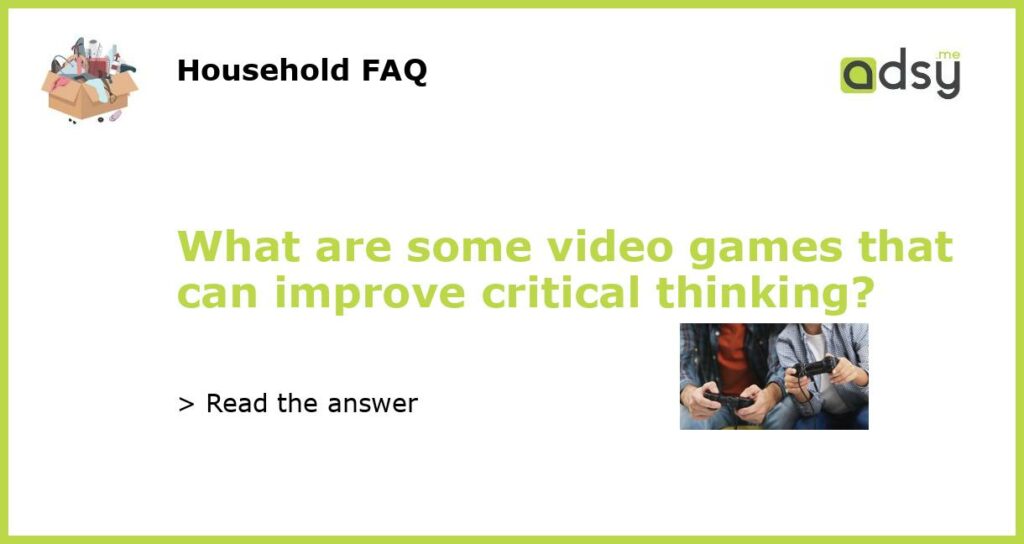Minecraft: A Sandbox Game that Encourages Problem-Solving
Minecraft is a popular sandbox video game that allows players to build and explore virtual worlds made up of blocks. While it may seem like a simple game at first, Minecraft actually promotes critical thinking and problem-solving skills. Players have to plan and strategize their actions, whether it’s building a structure or surviving against hostile creatures.
In Minecraft, players have to think critically about resource management, as they must gather materials to craft tools and items necessary for survival. They also need to use their problem-solving skills to navigate through complex landscapes and caves.
The game’s open-world nature and lack of strict guidelines give players the freedom to explore their creativity and develop their own strategies. This encourages critical thinking and allows players to come up with unique solutions to in-game challenges.
Portal: A Puzzle-Platform Game that Requires Logical Thinking
Portal is a puzzle-platform game developed by Valve Corporation. Through the use of a unique handheld portal device, players must solve a series of challenging puzzles to progress through the game.
Portal requires logical thinking and problem-solving skills to navigate through each level. Players have to analyze the environment, determine the best placement and timing for portals, and use physics to their advantage. This game encourages players to think outside the box and approach problems from different angles.
Portal’s challenging puzzles not only require critical thinking but also teach the importance of trial and error. Players must analyze their mistakes, learn from them, and adjust their strategies to progress in the game.
The Legend of Zelda: Breath of the Wild: A Role-Playing Game with Complex Problem-Solving
The Legend of Zelda: Breath of the Wild is an action-adventure game that offers a massive open world for players to explore. This game encourages critical thinking through its complex puzzles and challenges.
Players must use their problem-solving skills to navigate through dungeons, solve puzzles, and defeat enemies. The game provides players with various tools and abilities, which they must strategically use to overcome obstacles and progress in the game.
Players also have to think critically about resource management, as they need to gather and use items efficiently to survive in the game’s vast world. The game’s nonlinear nature allows players to approach challenges in different ways, promoting critical thinking and decision-making.
The Witness: A Puzzle Game that Promotes Pattern Recognition
The Witness is a puzzle game developed by Jonathan Blow. It features a vast island filled with puzzles that players must solve to progress in the game. The puzzles in The Witness require critical thinking and pattern recognition skills.
Players must explore the island, observing the environment and looking for clues to solve the puzzles. They need to identify patterns and use deductive reasoning to find the correct solutions.
The Witness encourages players to think critically about the relationships between different puzzle elements and how they fit into the larger puzzle. It challenges players to think abstractly and make connections between seemingly unrelated objects or symbols.
Firewatch: An Interactive Story Game that Requires Decision-Making
Firewatch is an interactive story game developed by Campo Santo. It immerses players in the role of a fire lookout stationed in the Shoshone National Forest. The game requires critical thinking and decision-making skills as players navigate through the narrative.
Players have to make choices that affect the outcome of the story, making them think critically about the consequences of their actions. They must analyze the information presented to them and consider the potential outcomes before making a decision.
Firewatch also encourages players to think critically about the characters and the events happening around them. It presents players with mysteries and conflicts, requiring them to analyze the clues and make informed decisions.






